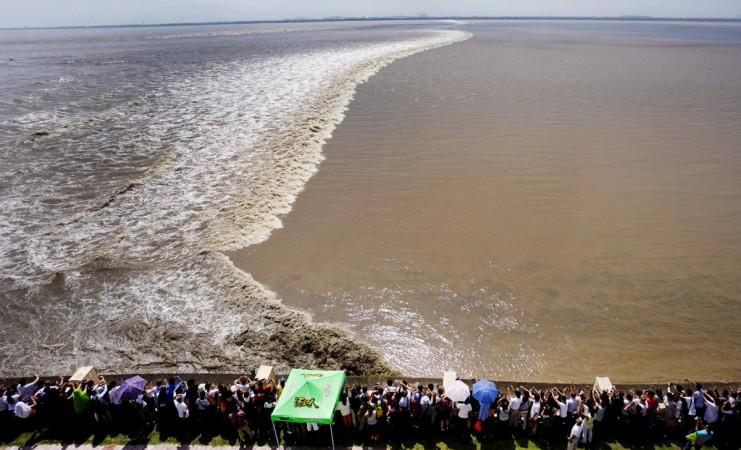
A river in China's northern Hebei Province has turned red due to pollution from local iron and steel plants, Chinese media reported. The reports of the polluted river come days after the government said over 80 percent of the country's underground water was unsafe for drinking due to pollution.
Water in a 4-km stretch of the Zhongting River was flowing red due to high concentration of iron ion and industrial waste, the state-run Xinhua said Thursday, citing local authorities. The river passes through the cities of Langfang and Bazhou and ends in Tianjin. Some Chinese media posted photos of the red river.
The river had been heavily polluted by neighbouring iron and steel plants about 10 years ago, and despite treatment, high levels of iron ions have remained in the water. The river had turned red in recent days, a government official from Bazhou told the agency.
Pollution has been a major concern in China, and while much of the media focus in recent years has been on the deteriorating air quality in the country, pollution of water sources has also raised alarm in the country.
Earlier this week, China's water resources ministry put up a report stating that water from a majority of 2,103 wells in the country's rural areas was unsafe for human consumption.
"From my point of view, this shows how water is the biggest environmental issue in China," Dabo Guan, a professor at Britain's University of East Anglia, told the New York Times.
"Water pollution in China is every bit as serious an issue as air pollution," Greenpeace's east Asia official Ada Kong was quoted as saying by the Associated Press.











![Miss Universe 2024: India's Rhea Singha slayed swimsuit round but failed to reach Top 12 [Watch]](https://data1.ibtimes.co.in/en/full/806361/miss-universe-2024-indias-rhea-singha-slayed-swimsuit-round-failed-reach-top-12-watch.jpg?w=220&h=138)




